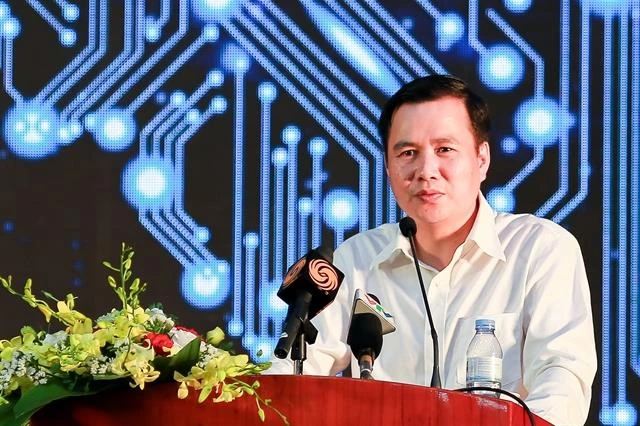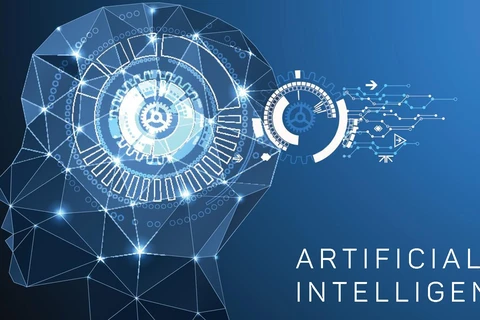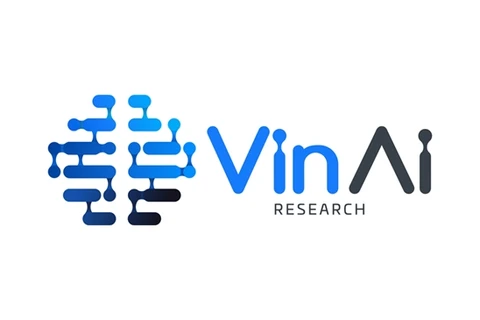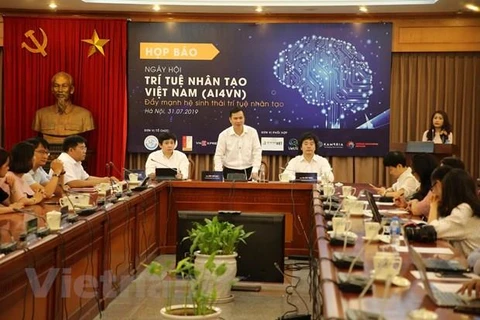
 Deputy Minister of Science and Technology Bui The Duy delivers a speech at the 2019 Vietnam Artificial Intelligence day (Photo: VNA)
Deputy Minister of Science and Technology Bui The Duy delivers a speech at the 2019 Vietnam Artificial Intelligence day (Photo: VNA) Hanoi (VNS/VNA) - A shortage of resources as well as a modest number of AI firms have been the biggest challenges for the development of artificial intelligence (AI) in Vietnam, said Bui The Duy, Deputy Minister of Science and Technology.
Duy told the 2019 Vietnam Artificial Intelligence day (AI4VN) held in Hanoi on August 15 that AI has replaced many manual and labour-intensive jobs. Around the world, many powerful countries have developed their own strategies for AI, making this technology the core of economic acceleration.
“Vietnam's AI industry has made significant progress, which is seen in products with high levels of AI in recent years. However, the country faces a number of challenges,” he said.
“If Vietnam adopts AI, we would be a market for new technology,” he told Viet Nam News.
He noted that Vietnam has a lot of work to do in developing AI. We should pay attention to training human resource and creating data systems.
Hoang Minh Son, principle of the Hanoi University of Science and Technology (HUST), said organisations and individuals in Vietnam have studied AI separately without having an ecosystem.
“AI is one of the key technologies in digital transformation. Many countries see AI as a key development trend, with big effects on all aspects of life,” Son said.
AI4VN is expected to create momentum for the development of AI in Vietnam by connecting relevant parties in institutes, universities, businesses, tech groups and start-ups. AI could be used in many sectors such as healthcare, education, business, trade, finance and agriculture, he said.
He added that the university established a new faculty on AI with the highest marks for student enrolment.
Associate professor Stefano Ermon from Stanford University shared new applications to predict and monitor agricultural productivity, food security and infrastructure access in developing countries. These methods have been able to provide economically-reliable predictions when using high-resolution satellite images. They can also revolutionise global poverty reduction efforts.
Hsu Hui Huang from Tamkang University shared Taiwanese experiences in AI, showing that the territory has made strong investment in big projects in AI research and development by building research centres and establishing a firm AI foundation.
He suggested that Vietnam could follow the AI road of Taiwan.
The two-day event attracted around 2,000 participants.
Also planned are a series of workshops on AI in tourism, health, education and finance, among others, to take place with the participation of Vietnamese and foreign experts, businesses, and researchers.
Visitors will be treated to exhibitions and the showcasing of self-driving cars and robots. – VNS/VNA
VNA























